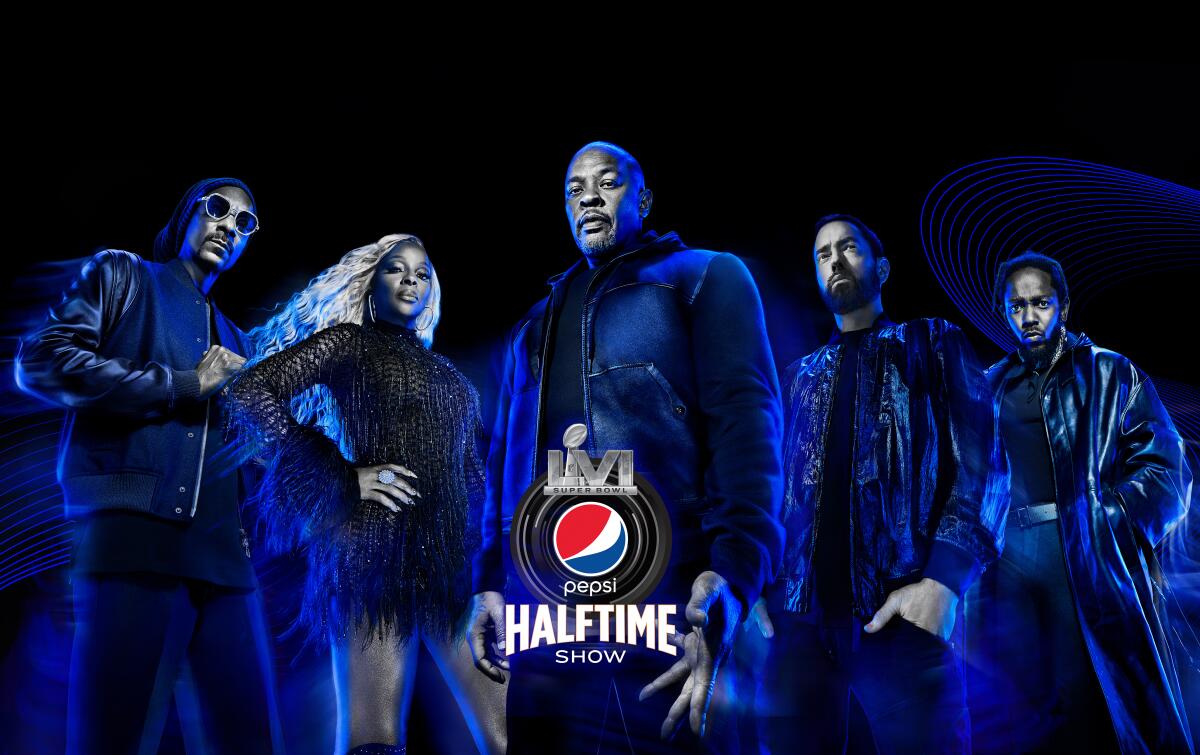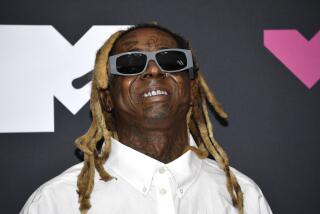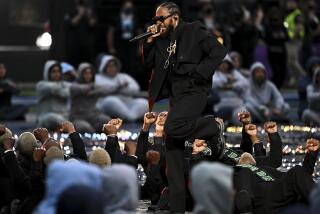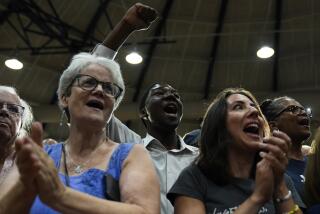72 hours of unpaid work? âUnacceptable,â say dancers and critics of Super Bowl halftime show

Hundreds of excited âfansâ will pour onto the field while hip-hop dream team Snoop Dogg, Mary J. Blige, Dr. Dre, Eminem and Kendrick Lamar perform during the Super Bowl LVI halftime show on Feb. 13. Viewers will probably see them move their bodies to the music. What they wonât see are the 72 hours they spent over nine days in unpaid rehearsals lasting as long as nine hours a stretch â and how they were asked to provide their own transportation and adhere to a strict confidentiality protocol.
Field cast participants â aspiring dancers, actors, singers and musicians recruited from local drill teams as well as theatrical, community and athletic groups â are expected to be grateful for the once-in-a-lifetime opportunity, but the situation is causing a stir in the dance community after dance artist and activist Taja Riley posted about it to her 110,000 followers on Instagram. Other performers, including dancer Alyson Stoner and Heather Morris (âGleeâ), have since spoken out about it on social media.
Speaking directly to halftime show choreographer Fatima Robinson, Riley implored the dance world icon to stand up for better treatment of the talent.
âI think that in a performance that is going to highlight predominantly African American movers, African American recording artists and African American culture â Inglewood stand up â I think this is the opportunity ... to really step up and do something about this,â Riley said in her live video, adding that the opportunity was made greater because it is Black History Month and that as an African American woman, Robinson is a powerful symbol in the industry.
In a subsequent interview with The Times, Riley said that Robinson had blocked her on Instagram and that as a longtime fan of Robinsonâs work, she was disappointed.
âThis is way bigger than the Super Bowl,â said Riley, who is the daughter of record producer Teddy Riley and has danced alongside the likes of Janet Jackson, BeyoncĂŠ, Nicki Minaj and Rihanna. âThis is another example of the systemic problem in the dance industry where we feel we are being bullied to pony up [by participating for exposure only] or face being blacklisted if we speak out.â
Riley has worked as a paid dancer in two previous Super Bowl halftime shows, and she did not audition for this yearâs performance. But she felt compelled to speak out after learning that Bloc LA, a prominent agency representing dancers in Los Angeles, reached out to clients with the opportunity to volunteer.
Riley posted an email from a Bloc client who had been selected to serve as a âgroup leaderâ for the field cast performance that read in part, âSpeaking with the casting manager, she asked if I knew anyone who would be open to the opportunity/experience and specified that she wanted âpredominantly African American movers.ââ
Bloc LA declined to comment after a request by The Times. But in an interview with The Times, Robinson said that she is represented by Bloc and thatâs why the call was put out by the agency â to see if any clients knew people who would like to volunteer.
âWeâre not asking dancers to work as dancers for free,â said Robinson. âWhat was asked is, âWould anyone like to volunteer for the field cast?ââ
Casting manager Kristen Terry said that language regarding âAfrican American moversâ was never a part of the official casting call, but that it was possible someone had articulated it in a conversation at some point.
âWe wanted to ensure a diverse showing on the field,â Terry said.
Jana Fleishman, executive vice president of strategy and communications for Roc Nation, which executive-produces the Super Bowl halftime show, issued a statement to The Times saying, âNo one working with this show contacted an agency to request professional dancers to volunteer. Lastly, we strictly follow and adhere to all SAG-AFTRA guidelines.â
âWe know firsthand the level of passion, talent, creativity, and long days of preparation it takes to pull off a performance of this caliber and so itâs important that we address the current narrative,â Fleishman wrote. âWe completely agree that all dancers should be compensated for their craft and that is why we are employing 115 professional dancers performing alongside the headliners. The professional dancers are completely separate from the volunteer-based, non-choreographed field cast. As in years past, it is completely up to the volunteer candidates to participate. Volunteers are not asked to learn choreography.â
The field cast, said Robinson, is meant to represent people going to a concert, âto fill up the space and bring energy to the performers who are performing on the stage that we designed.â The only qualification for getting brought in as a volunteer is that you be able to âwalk and chew gum at the same time,â she added.
Robinson said the call for paid dancers was put out through most of the major dance agencies in L.A. The 400 field cast volunteers, she said, are being recruited elsewhere.
âWhen a dancer comes to L.A., they want every opportunity to be a part of something in Hollywood â how can they learn and experience something?â Robinson said. âThe same way people volunteer for Coachella and the Olympics â to have the experience, to be in the place, to be in the event. Super Bowl has been doing it every year; this year has been no different.â
Riley says this kind of thinking about the value of work, and the meaning of unpaid labor, is vastly outdated, particularly after the protests for social justice and reform in the wake of George Floydâs murder âand in the midst of a pandemic that poses extra risks for volunteers.
âFour hundred predominantly unpaid Black workers during Black History Month with Black creators and Black artists â this is unacceptable,â Riley said. âWhether itâs one volunteer or 400, every single person working the most profitable event of the year should be paid.â
Riley added emphasis on the historic murkiness of the value placed on artistsâ time and labor. âYou are basically contracting hundreds of Black-owned businesses, because I consider myself a Black-owned business.â
Robinson pointed out that she began her career dancing for free before becoming an extra in the 1991 film âBoyz n the Hood.â She has been working in the industry for more than 30 years and is at the top of her game, she added.
âIf a dancer is sitting around waiting for a job to happen, but you can be on the field for the Super Bowl â why would you not want to do this?â Robinson said. âThe last thing I want to do is take advantage of hardworking dancers.â
When asked about the 72 hours of rehearsal time required of volunteers, Terry said that it was a safety issue.
âThey need to feel comfortable,â Terry said, adding that the volunteers needed to learn where the cables, camera and pyrotechnic effects were on the field, and how to get on and off the field in a safe and orderly way.
More to Read
The biggest entertainment stories
Get our big stories about Hollywood, film, television, music, arts, culture and more right in your inbox as soon as they publish.
You may occasionally receive promotional content from the Los Angeles Times.











